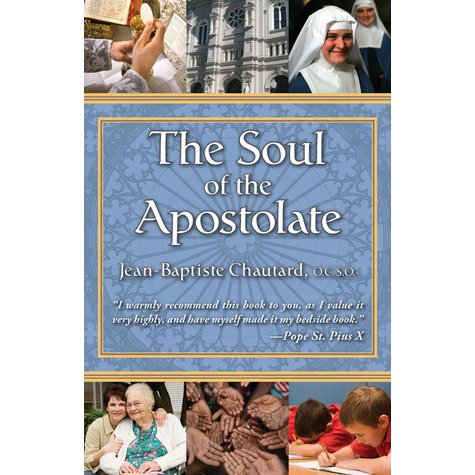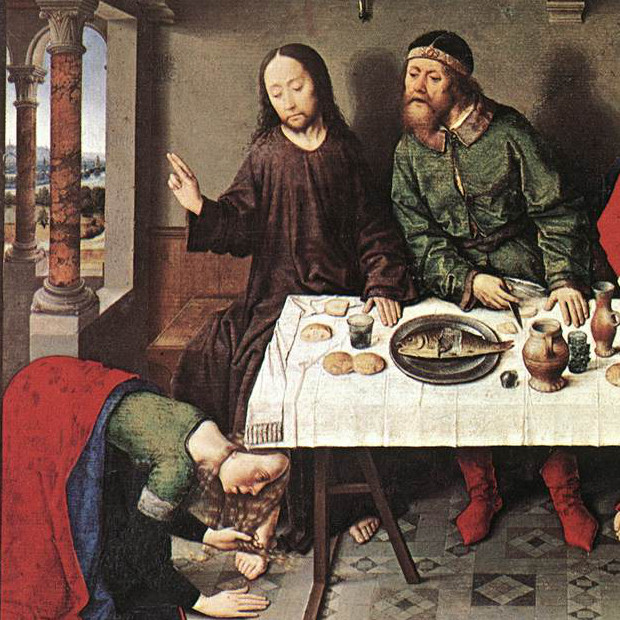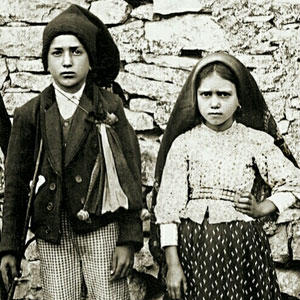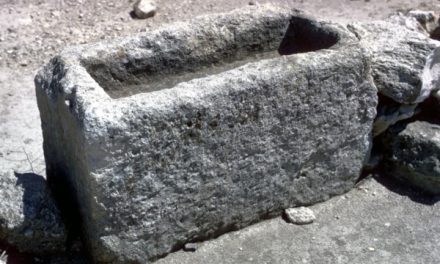Dom Jean-Baptiste Chautard’s The Soul of the Apostolate presents the interior life — one’s personal relationship with the Lord, nourished by daily prayer — as the foundation of a life of work and service.
It’s a very good book, suitable for Catholics in all states of life. It was, apparently, a book which Pope St Pius X dipped into so often, that it had a permanent place on his bedside table.
I don’t read it as frequently as that, but there is a quote from the book which I meditate on every year during my annual retreat:
“If the priest is a saint, the people will be fervent; if the priest is fervent, the people will be pious; if the priest is pious, the people will at least be decent; if the priest is only decent, the people will be godless.”
I think this observation works very well as a general principle. (We only have to look around to see the adverse impact of criminally indecent priests.) Good Shepherd Sunday is an occasion to pray not just for more priests, but for holy priests. We all need holy priests — me included — who are truly consecrated to Christ; struggling to conform themselves, every day, to the Good Shepherd.
Of course, ultimately we all look to Christ. When the Church’s ministers let us down — and sadly that’s inevitable — we have to look to the tabernacle. We remember that he’s really here, really present, no matter what. But it’s no accident that the Lord did not only give himself to us in the Eucharist. He also founded the Church.
“I will not leave you orphans,” he promised, and he hasn’t. He consecrated the Apostles; he filled them with the Holy Spirit. And he gives us priests, in every generation: spiritual fathers.
There are two traditional, and very beautiful, ways to pray for priests:
Stations of the Cross
The Stations of the Cross can be, but needn’t be, a 30 minute exercise. It can be as simple as looking at each station, and reading the name of the station. However you do it, offering the Stations of the Cross on behalf of a priest is a very noble prayer.
It is every priest’s task to follow the path of Christ; to walk the way of the cross. When we pray the Stations on behalf of a particular priest — or seminarian — we imitate the role of Simon of Cyrene: we help this alter Christus to carry his cross. And just as Simon derived many graces from his work of service, so will we.
Prayer at the time of the priest’s communion
I like this custom very much. I wish I had known about it before I was ordained. It complements the custom of the priest praying for each person as he ministers communion to them.
The time of the priest’s communion, which is normally when one is preparing for one’s own communion, is also a great moment to pray for that priest. The traditional prayers vary, but they generally share two common intentions:
- That the Lord might find a place of shelter and rest in the heart of this priest.
- That the Lord will make this priest a man of prayer and an untiring labourer.
The first intention is something we should all pray for ourselves. During the Lord’s public ministry, he would exhaust himself preaching, teaching and healing. On at least one occasion, his attempts at a spiritual retreat were thwarted by the unflagging demands of the crowds which followed him. (Matthew 14)
At Bethany, however, in the home of Mary and Martha and Lazarus, Jesus found rest and recreation. Our own hearts should be like another Bethany — a place where our Lord can rest, confident of our love and attention. Perhaps at other times, our prayer is populated by petitions, but at communion why not allow the Lord to rest in our love?
As for the second intention, it seems to me that priests are tempted in two directions: excessive prayer and excessive work. Monks and social workers are both important. But diocesan priests, at least, should not be monks, and nor should we be social workers. We need to navigate a middle way, the golden mean, of contemplative prayer and active apostolate.
Pray for priests. Pray for seminarians. That they may always pursue the challenge, and never tire of the interior struggle, to be holy.






Recent Comments